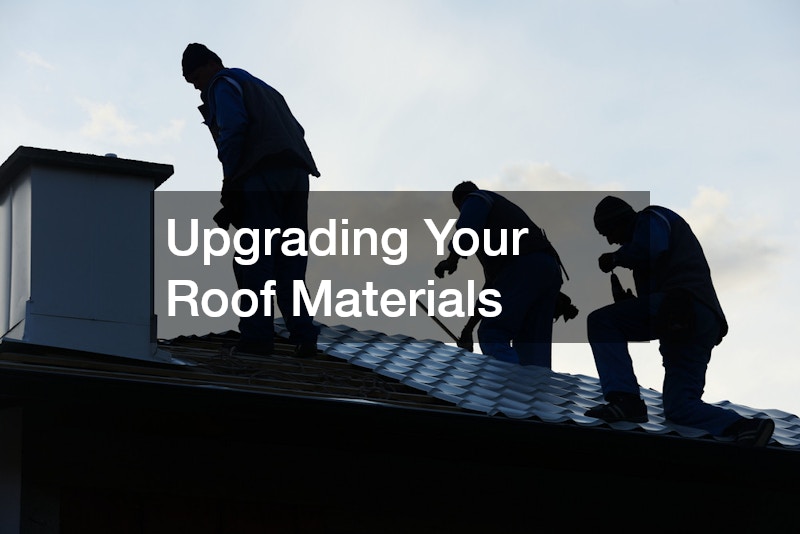Disclaimer: The insurance information provided here is for general knowledge only and does not replace advice from licensed insurance professionals. Please consult a qualified advisor for coverage decisions.
When it comes to reducing your home insurance premium, most people focus on common strategies like increasing their deductible or opting for a higher coverage limit. However, there are lesser-known factors that can significantly affect the cost of your home insurance policy. Many of these factors involve simple changes or investments that not only help protect your home but also make you a more attractive customer to insurers. In this blog, we’ll explore 10 surprising things you can do to lower your home insurance premium and offer practical tips to help you start saving today.
Quitting Smoking in the Household

One unexpected way to lower your home insurance premium is by quitting smoking or eliminating smoking from your household. Smoking is a significant risk factor when it comes to fire hazards, and insurers often charge higher premiums for homes where smoking is common. This is because the risk of accidental fires is higher, and the cost of potential damage can be substantial. Many insurance providers view homes with a smoke-free environment as a lower risk and may offer discounts to homeowners who have taken steps to make their homes smoke-free.
If you’ve quit smoking or no longer allow smoking in your home, you may be eligible for a discount on your home insurance premium. This is especially true if you live in an area prone to wildfires or have a home that is older and may be more susceptible to fire damage. In addition, keeping your home smoke-free may help preserve the condition of your furniture, carpets, and drapes, all of which can be damaged by smoke over time. Making the decision to quit smoking, and even making use of services like a home care agency to assist with managing health and lifestyle changes, can help reduce the fire risk in your home and lower your insurance premiums.
Installing a Security System
One of the easiest and most effective ways to lower your home insurance premium is by installing a security system. Insurance companies love it when homeowners invest in security measures, as it lowers the risk of theft or damage to the property. With advancements in technology, security systems have become more affordable and easier to install than ever. Modern systems often come with cameras, motion detectors, and alarms that can instantly notify authorities of a break-in or emergency.
A professionally monitored home security system can significantly impact your home insurance premium. Many insurers offer discounts for homeowners who install systems that are actively monitored 24/7. These systems can detect everything from burglaries to fires and carbon monoxide leaks, alerting both the authorities and you in real-time. Investing in a dog boarding service for your pets while you are away may also add another layer of protection, as trained animals can deter potential burglars.
Bundling Multiple Insurance Policies
Another unexpected way to reduce your home insurance premium is by bundling multiple insurance policies with the same provider. Many insurance companies offer discounts for customers who purchase more than one type of coverage, such as combining home, auto, and life insurance. This is not only a great way to save money but also a convenient method of managing all your insurance needs under one roof. Bundling policies can often provide a higher level of customer service and allow you to keep track of your coverage in a streamlined way. The savings from bundling can quickly add up, often resulting in significant reductions to your home insurance premium.
When you bundle your home insurance with another policy, such as auto insurance, you typically receive a discount of up to 25% off your home insurance premium. This discount is especially beneficial if you already have another insurance policy with the same provider. It’s worth noting that the more policies you bundle, the greater the discount you can receive. For example, if you combine home insurance with a maintenance plan for your property or even a health insurance policy, the insurer may provide additional savings.
Living Near a Fire Station

The proximity of your home to a fire station is an important factor in determining your home insurance premium. Insurance companies assess the risk of fire damage when calculating premiums, and the closer you live to a fire station, the faster help can arrive in an emergency. This reduces the potential for extensive damage to your property in case of a fire, which is why insurers often offer lower premiums for homes in areas with a nearby fire station. Additionally, if you live in a community with excellent fire response times, you’re less likely to face long-term or catastrophic damage, making your home a lower-risk investment for insurance companies.
If you live within a few miles of a fire station, your home insurance premium could be significantly reduced due to the reduced response time in case of a fire. Many insurance providers factor in the response time of local fire departments when determining premiums, offering discounts for homes in areas where the response time is short. To maximize your savings, consider installing fire-resistant materials in your home, such as roofing and siding, which could further reduce your premium. Furthermore, keeping the area around your home free of flammable debris and regularly checking fire alarms can contribute to an even safer environment. If you’re a dog owner, a stairlift install may also make it easier to evacuate pets and family members quickly in the event of an emergency.
Adding Storm Shutters or Reinforcements
Installing storm shutters or reinforcing your windows and doors is another effective strategy for lowering your home insurance premium. In regions prone to hurricanes, tornadoes, or severe thunderstorms, insurers typically charge higher premiums due to the increased risk of wind damage. However, by adding storm shutters, impact-resistant windows, or other reinforcements to your home, you demonstrate to your insurer that you’ve taken proactive steps to mitigate that risk.
Storm shutters, particularly those made from heavy-duty materials like steel or aluminum, offer substantial protection against flying debris and high winds, reducing the likelihood of window or door damage during a storm. Insurance companies often reward homeowners who invest in these types of reinforcements with reduced premiums. If you live in an area where hurricanes are a common threat, reinforcing your doors and windows can also minimize the risk of water damage, which is often expensive to repair. If you have a water damage restoration plan in place or have taken steps to seal your home from water intrusion, your insurer may offer further discounts, recognizing that you’re prepared for the worst.
Increasing Your Credit Score
Believe it or not, your credit score can play a role in the cost of your home insurance premium. Insurance companies often use your credit history as part of their risk assessment when determining your premium. Research has shown that individuals with higher credit scores tend to file fewer claims, making them less risky to insure. As a result, insurers may offer lower premiums to homeowners who have strong credit scores. Taking steps to improve your credit score can be an easy and impactful way to reduce the overall cost of your home insurance policy, even if you’re not actively making home improvements.
A higher credit score shows insurance companies that you’re more likely to be financially responsible, reducing the likelihood of a claim or a lapse in your insurance coverage. To boost your credit score, focus on paying down high-interest debt, keeping your credit utilization low, and ensuring your credit report is free from errors. If you’re unsure where to begin, working with a financial advisor can provide clear strategies for improving your score. Some homeowners may find that working with concrete contractors to enhance their property, such as installing a durable driveway or foundation, improves not only the aesthetic value but may also have a positive influence on their overall credit health by maintaining a strong property value.
Upgrading Your Roof Materials

Roof upgrades are a highly effective way to lower your home insurance premium. Insurance companies consider the condition of your roof a major factor when determining your premium, as an older or poorly maintained roof is more likely to suffer damage in extreme weather conditions. Upgrading your roof with durable materials, such as metal, asphalt shingles, or slate, can greatly reduce the risk of costly damage.
A new roof or roof upgrade not only protects your home but can also significantly reduce your insurance premium. Many homeowners see an immediate reduction in their premiums when they replace an old, worn-out roof with stronger, more weather-resistant materials. As part of a broader home improvement strategy, a roofing professional can help assess your current roof’s condition and recommend upgrades that will qualify you for premium reductions, ensuring your home is better equipped to withstand the elements.
Avoiding Small Claims
While home insurance is designed to protect you in the event of damage or loss, frequently filing small claims can work against you in the long run. Insurance companies view a history of small claims as a red flag, suggesting that the homeowner may file claims for every little issue, leading to higher administrative costs for the insurer. Over time, this could cause your premiums to rise. By avoiding the temptation to file a claim for minor damage, you can maintain a clean claims history and potentially reduce your home insurance premium.
Insurance companies track the frequency of claims, and even small ones can add up. For example, if you were to file multiple claims for minor issues like a broken fence or a small kitchen fire, insurers may see this as a pattern of risk-taking behavior. Instead, it may be more cost-effective to pay for minor repairs out of pocket to avoid inflating your claims history. Additionally, if you have a pet at home, using the services of local dog trainers can help prevent accidents or damage caused by your pets, such as chewing furniture or knocking over items, which could otherwise lead to claims.
Making Home Safety Improvements
Investing in home safety improvements is another great way to lower your home insurance premium. Insurance providers reward homeowners who take steps to reduce the risk of accidents or damage. Whether it’s adding smoke detectors, installing fire extinguishers, or improving your home’s electrical system, safety improvements demonstrate to insurers that you are actively protecting your home. These upgrades help reduce the likelihood of costly claims related to fires, accidents, or injuries, which makes you a less risky client for insurance companies.
Simple safety improvements can go a long way in reducing your premium. Installing high-quality smoke and carbon monoxide detectors, adding motion-activated lights around the exterior of your home, or reinforcing your home’s electrical wiring can all contribute to a safer living environment. If you have elderly family members or those with mobility issues, consider installing handrails or making your home wheelchair accessible to prevent falls. Keeping your garage door well-maintained by scheduling regular garage door repair services can help prevent accidents or injuries caused by faulty doors or malfunctioning openers.
Joining a Homeowners Association

Another surprising factor that can affect your home insurance premium is whether or not you belong to a homeowners association (HOA). Many insurance companies offer lower premiums to homes located in well-managed communities with an active HOA. The reasoning behind this is that HOAs often maintain certain standards of care, such as regular inspections, upkeep of common areas, and enforcement of safety regulations. This reduces the risk of damage or accidents in the neighborhood, making it less costly for insurers to provide coverage.
Being part of an HOA means that you’re part of a community that takes responsibility for maintaining the neighborhood and addressing common safety issues. If your HOA enforces strict maintenance standards, insurers may offer discounts as a result. Having a local realtor who is knowledgeable about HOA regulations can help you select properties that are part of a well-maintained community, further reducing your overall risk and lowering your home insurance premium.
Lowering your home insurance premium doesn’t have to be a complicated or expensive process. By taking small, proactive steps like upgrading your roof, improving home safety, or installing a security system, you can significantly reduce the cost of your coverage. Many of the strategies discussed in this blog, such as improving your credit score, avoiding small claims, or quitting smoking, are not only cost-effective but can also improve your overall quality of life and the safety of your home. By making these surprising yet simple changes, you’ll be well on your way to a more affordable and secure home insurance policy.



